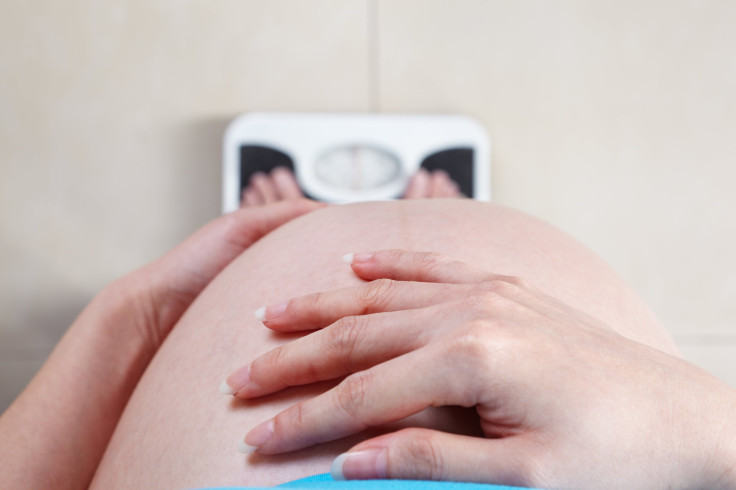Babies Born To Obese Moms Pre-Programmed For Childhood Obesity Risk Before Birth

Babies growing in the wombs of obese women are more likely to grow into obese children, even before they’re born, according to new research from the University of Colorado School of Medicine, presented at the American Diabetes Association Scientific Session in Boston.
"One of the questions that needs to be explored is how children of obese mothers may be at risk for becoming obese as a result of factors that occur even before they are born," the study’s co-author Kristen Boyle, professor at the University of Colorado School of Medicine, said in a press release. "Our study looked at the mechanism by which children may be preprogrammed for increased obesity risk, because of changes occurring in utero."
Boyle and her research team extracted stem cells from donated umbilical cords. The babies were either born from a normal-weight mother or a mother who was diagnosed obese at her first prenatal visit. After growing the stem cells into fat and muscle in a petri dish, they watched the obese mothers' babies' cells grow 30 percent high in fat content than the normal-weight mothers' babies' cells. They also plan on looking at whether or not the cells reveal a change in metabolism.
Even with the medical innovations provided to a mother today, pregnancy does not come without its risks. Obesity amplifies the hurdles toward a safe full-term delivery. During a normal pregnancy where the mother is carrying one baby, the recommended weight gain is anywhere from 25 to 35 pounds, according to the Mayo Clinic. An overweight woman should stay within the 15- to 25-pound range, while an obese woman is limited to 11 to 20 pounds of weight gain.
Regardless of how much or little a mother gains, the baby is still born at a higher risk of growing up to be obese. In the last 30 years, childhood obesity has more than doubled in children and quadrupled in adolescents, according to the Centers for Disease Control and Prevention. While more than one-third of the adult population in the United States is obese and continues to grow, the percentage of women entering pregnancy obese parallels the nation’s statistic.
"At this point, because this is fairly preliminary, we don't know how these differences in cells grown in the lab correspond to the physiology of these children after birth," Boyle said. "But it's clear that there is an inherent propensity toward more fat content in the cells from offspring of obese moms, in culture. We also know that the fat accumulation in these cells corresponded to the baby's fat mass at birth. The next step is to follow these offspring to see if there is a lasting change into adulthood."
Women who are obese at the time of their pregnancy not only put their baby at risk, but also themselves, according to the American Congress of Obestricians and Gynecologists. If they don’t already have high blood pressure, it will likely develop during the second half of their pregnancy known as gestational hypertension. They may also develop gestational diabetes, which spikes their blood pressure and puts them at risk for giving birth to a very large baby, leading to cesarean delivery. If they experience preeclampsia, their kidneys and liver fail, putting both the mother and baby at risk of a dangerous birth. In rare cases, stroke and death may occur.
Source: Boyle K. American Diabetes Association’s 75th Scientific Sessions. 2015.
Published by Medicaldaily.com



























